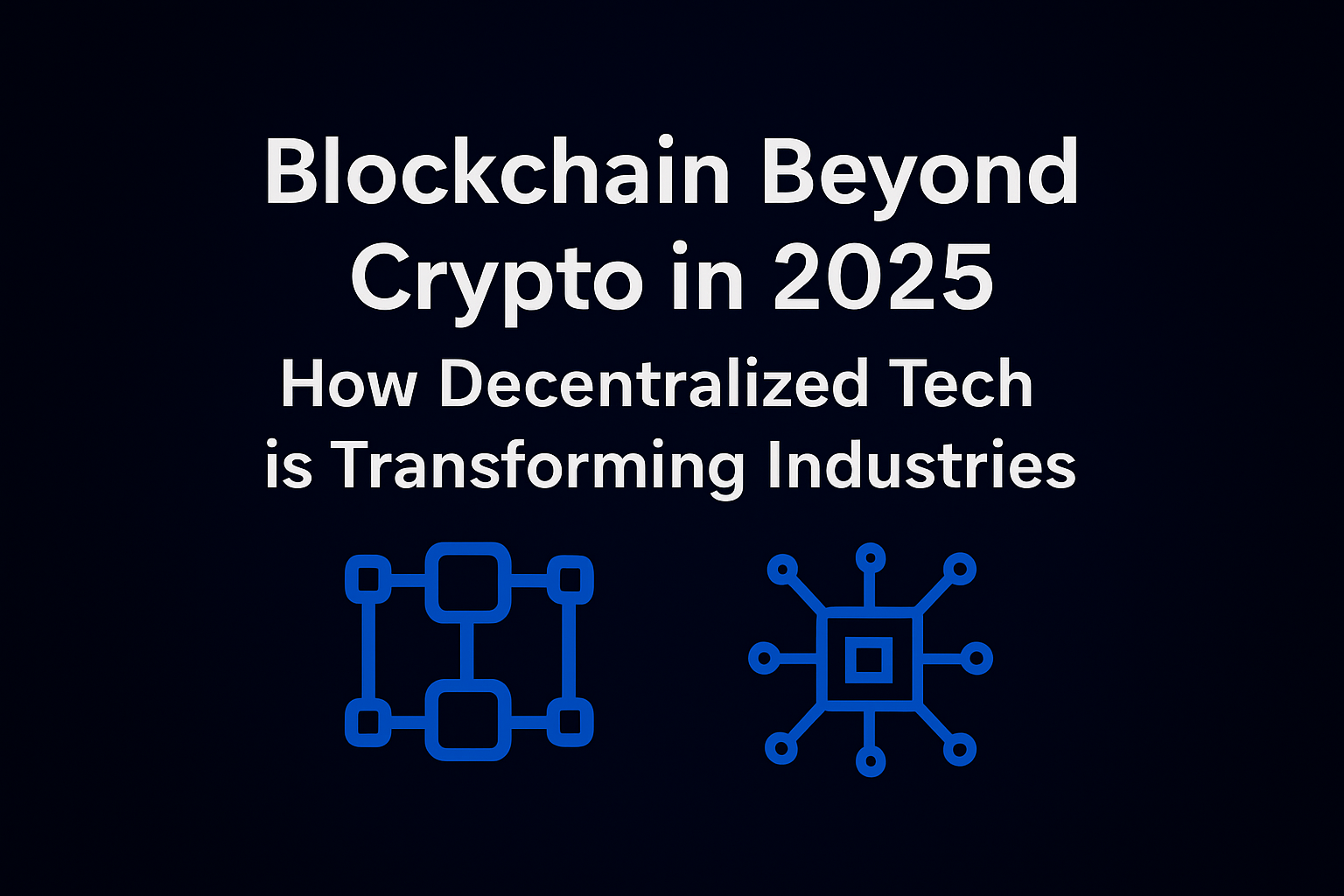Introduction
When people hear the word blockchain, most still think of Bitcoin or Ethereum. But in 2025, blockchain has grown into something much bigger. Across the USA, industries like healthcare, supply chains, real estate, and even government services are adopting blockchain for transparency and security.
Blockchain is no longer just about money. It’s about trust, traceability, and efficiency. By going beyond crypto, blockchain is shaping the next digital revolution.
What is Blockchain Beyond Crypto?
Blockchain is a decentralized ledger that securely records transactions. Beyond crypto, this technology powers data storage, identity verification, smart contracts, and secure record-keeping.
👉 Just like digital twin technology creates digital replicas of real-world objects, blockchain creates tamper-proof digital records for industries.
Key Uses of Blockchain in 2025
1. Supply Chain Transparency
Companies use blockchain to track products from origin to delivery. Consumers can check if their food is organic or if products are ethically sourced.
(External Source: Wired on Blockchain Supply Chains)
2. Healthcare Data Security
Blockchain helps hospitals store patient data securely, reducing the risk of cyberattacks. Patients also control who can access their health records.
👉 Similar to energy-efficient computing SEO, hospitals are adopting blockchain to save resources while improving security.
3. Digital Identity Verification
Instead of multiple logins and passwords, blockchain allows people to have a single digital ID that is safe, portable, and verifiable worldwide.
4. Real Estate & Property Deals
Blockchain removes middlemen from buying and selling property. Smart contracts automatically transfer ownership when conditions are met.
5. Finance Beyond Cryptocurrency
Banks use blockchain for faster cross-border payments, fraud prevention, and smart contracts.
👉 Just as businesses use AI keyword research to find accurate insights, banks use blockchain for accurate and secure transactions.
6. Government & Voting Systems
Some US states are experimenting with blockchain-based voting to ensure secure, tamper-proof elections.
Benefits of Blockchain Beyond Crypto
- Transparency – Every transaction is recorded and traceable.
- Security – Data is nearly impossible to hack or alter.
- Efficiency – Removes unnecessary intermediaries.
- Cost Savings – Lower transaction and operational costs.
(External Source: Forbes on Blockchain Uses)
Challenges of Blockchain Adoption
- High Energy Use – Some blockchain networks still consume large amounts of energy.
- Regulatory Uncertainty – Governments are still defining rules for blockchain systems.
- Integration Issues – Many industries struggle to merge blockchain with old IT systems.
- Public Trust – Beyond crypto, people still need to understand how blockchain works.
👉 These challenges are similar to those faced in AI SEO trends 2025, where industries must adapt quickly to new technologies.
Future of Blockchain Beyond Crypto (2030 Vision)
By 2030, experts predict:
- Blockchain IDs will replace traditional logins.
- Most US hospitals will use blockchain for medical data.
- Smart cities will use blockchain to manage traffic, energy, and utilities.
- Governments will implement blockchain-based tax collection and voting.
(External Source: WSJ on Blockchain Future)
FAQs About Blockchain Beyond Crypto
Q1: Is blockchain only about cryptocurrency?
No, in 2025 it powers industries from healthcare to real estate.
Q2: Can blockchain improve everyday life?
Yes, from secure digital IDs to transparent supply chains, it benefits individuals directly.
Q3: Is blockchain safe?
Blockchain is one of the most secure technologies, but risks depend on how it’s implemented.
Conclusion
Blockchain in 2025 has moved far beyond Bitcoin. It’s reshaping industries by building trust and transparency in ways traditional systems cannot.
From healthcare and finance to real estate and governance, blockchain ensures secure, efficient, and reliable systems. The future belongs to industries that embrace blockchain not just as a financial tool, but as a foundation for the next digital economy.
